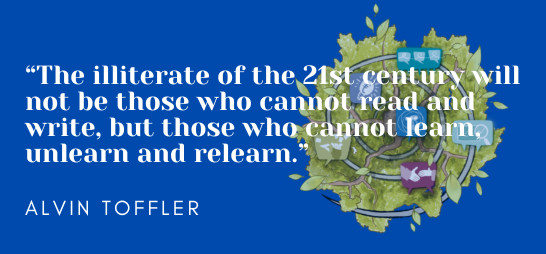Knowledge Is the Strongest Asset of Organizations and Teams
The challenges in the environment brought by globalization, rapid growth, and expansion of information and communication technologies have made innovation and change necessary for all types of organizations, including the public sector. The complexity of the world calls for a solution that is strongly linked to the knowledge an individual, team, and institution poses. But how much are we aware of the severity of the situation that the uncertain world brings? Do we systematically invest in organizational learning and knowledge management as solutions to thrive in it?
We live in a knowledge age. Public sector organizations are mainly knowledge-intensive institutions, and to exploit their knowledge, effective knowledge sharing among different departments is required. Knowledge is an organizational asset that should be carefully managed.
The CEF has been investing in the capacity building of public finance officials in South East Europe for 20 years. Today, as leaders in learning, we have the vision to inspire public officials, both individuals and teams, to shape institutional governance that drives successful economies and fair societies through learning and knowledge sharing. More than ever, we believe that only through shared knowledge and a culture of lifelong learning within the organization we can stand any challenge that public institutions many times face: brain drain of young staff, constant fluctuation within departments, elderly workers entering retirement, lack of coordination and communication skills, performance and motivation issues.
Organizations that systematically manage their knowledge know how to adapt and translate new knowledge into new ways of behaving. They actively manage the learning process to ensure that it occurs by design rather than by coincidence. Distinctive policies and practices are responsible for their success; they form the building blocks of learning organization. In these organizations, learning is not merely reactive but intentional, effective, and connected to the purpose and strategy of the organization. It happens timely and by anticipating challenges, rather than just responding to crises. This creates flexibility and agility, so that the organization can handle uncertainty. Most importantly, in learning organizations people see themselves as capable of continuously generating new ways to create the results they most want. An organizational culture that is built on learning engages employees in continuous, harmonious and productive change designed to achieve the results that they genuinely care about.
We are confident that organizational learning has long-term value. “Adult learning, as an important part of lifelong learning, can contribute to making economies and societies stronger and more resilient. It is important to provide necessary conditions for people to be agents of change through the choices they make.”[3] Approached thoughtfully, the process of building a learning organization can unleash the enormous creative force of people’s intrinsic motivation, curiosity, and love for learning, and focus on the fact that collective intelligence and energy are fundamental imperatives of the organization.

However, without commitment and work, ideas stay only ideas and words written on paper. Organizations should commit to becoming learning organizations and raise awareness of the importance of lifelong learning. “The concept of an education pursued throughout life, with all its advantages in terms of flexibility, diversity and availability at different times and different places, should command wide support.”[4] As only then can “people continually expand their capacity to create the results they truly desire, where new and expansive patterns of thinking are nurtured, where collective aspiration is set free, and where people are continually learning to see the whole together.”[5]
We believe that public institutions can and must become learning organizations and invest in knowledge management. Adequate establishment of systematic knowledge management function can create the avenue for harmonious existence, coordination of thoughts and ideas, and ensure knowledge integration, which will initiate human development. Through lifelong learning, institutions become stronger and more connected – within themselves and with the environment they operate in.
We are ready to share recommendations on how to embark on a journey of becoming a learning organization and start practicing principles that foster learning and knowledge sharing culture. The first upcoming opportunity will be the training of trainers (ToT) Knowledge Management in Public Institutions. Together with our strategic partners, CEF Coordinators, we will discuss the importance of systematic knowledge management that directly affects the capacities of institutions. Learners will gain insights into the CEF’s methodology around six building blocks of what it takes for an institution to become and be a learning organization.
References:
[3] Council Resolution on a new European agenda for adult learning 2021–2030 (2021/C504/02). EUR-Lex
[5] Senge, P. M. (2006). The Fifth Discipline. The Art & Practice of the Learning Organisation. Revised edition. London: Random House Business Books
[7] Ranganath, N., Garvin, D. A., Arun, N. M. Creating a Learning Organization
[9] CEF et al. (2022). How Public Institutions Can Become a Learning Organization
[10] CEF. (2021). Strategic Direction 2022–2026
